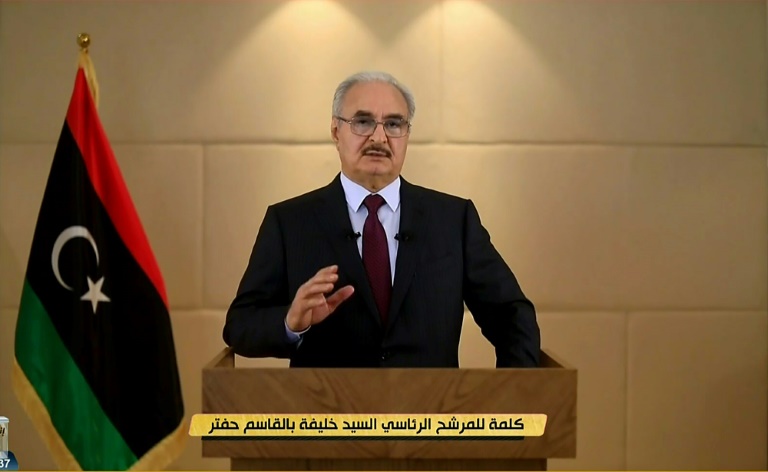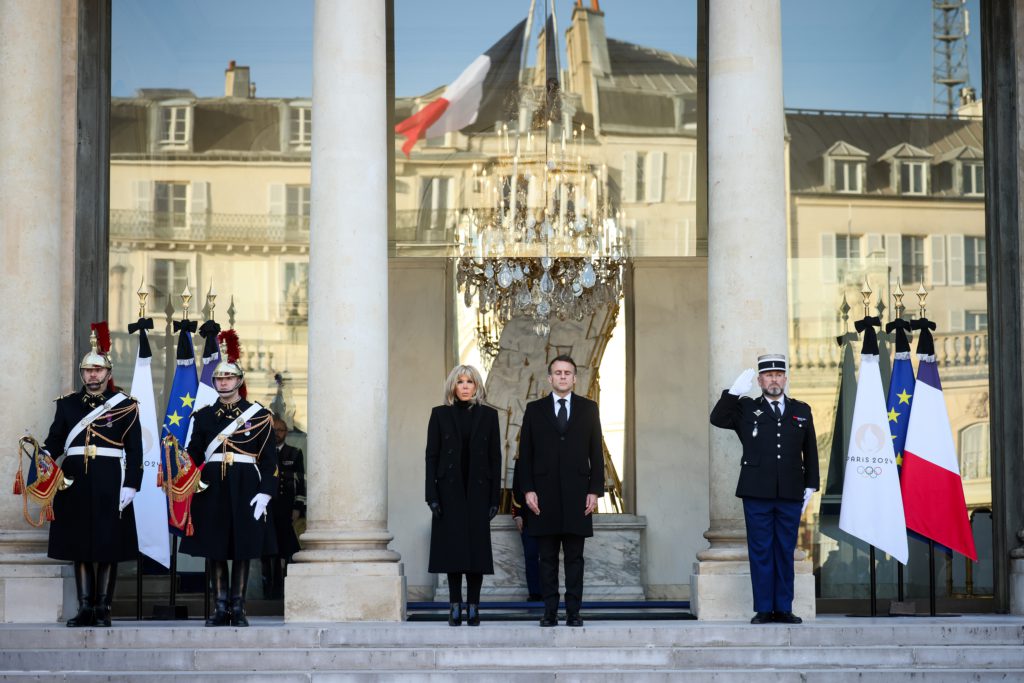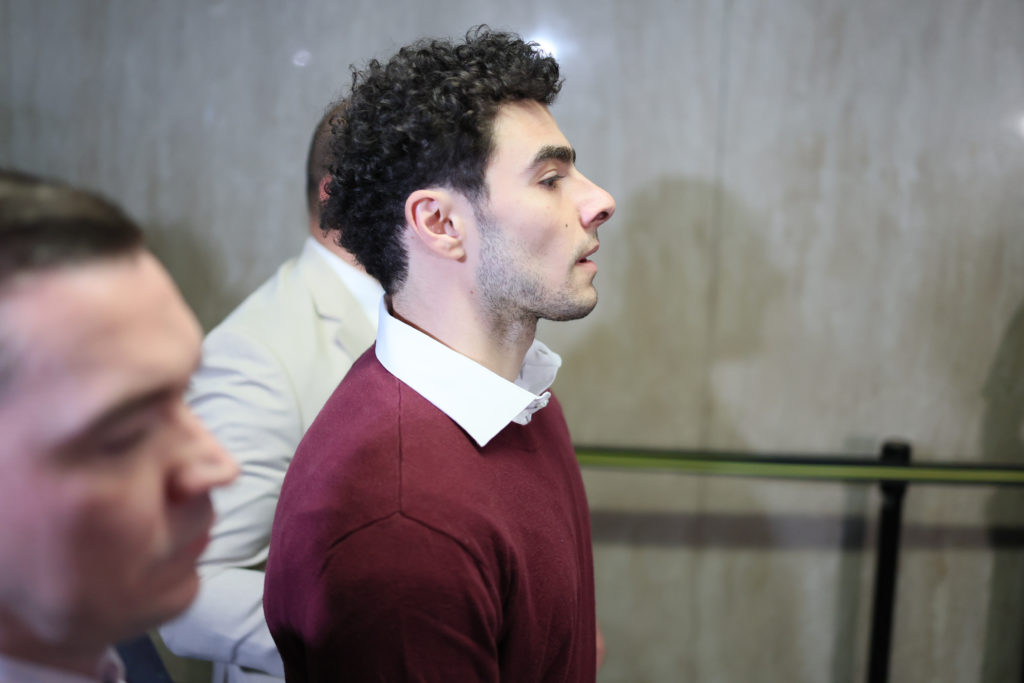The strongman in the east of war-scarred Libya, Khalifa Haftar, said Tuesday he would run for president in a December 24 election that is also set to be contested by a son of former dictator Moamer Kadhafi.
“I declare my candidacy for the presidential election, not because I am chasing power but because I want to lead our people towards glory, progress and prosperity,” he said in a speech, broadcast live on Libyan television.
His announcement comes two days after the candidacy of Seif al-Islam Kadhafi — the son of slain dictator Moamer Kadhafi — who has been accused of war crimes by the International Criminal Court (ICC).
Both are controversial figures. Haftar, backed by Russia, Egypt and the United Arab Emirates, is despised by many in western Libya and has been accused of seeking to establish a military dictatorship.
In April 2019, his self-styled Libyan National Army (LNA) launched an offensive on the capital Tripoli under the pretext of rooting out militant groups.
The year-long war left the outskirts of the capital in ruins and Libya more divided than ever, but a United Nations-brokered ceasefire last October paved the way for a peace process leading to elections set for December 24.
In his speech Tuesday, Haftar affirmed that the poll is “the only way to pull Libya out of chaos”.
On September 22, he provisionally retired from his role as head of the LNA in line with electoral law to allow him to run for president.
– ‘Intimidation or worse’ –
Last week, his forces said 300 mercenaries fighting on his side would leave Libya at the request of France in a “unilateral gesture”, expecting nothing in return from the government in Tripoli.
But pro-Haftar forces remain in control of much of eastern and southern Libya, and some analysts have voiced scepticism over the chances of a free and fair vote.
“Haftar’s forces have by far been Libya’s leading perpetrators of war crimes since 2014, and are bound to use intimidation or worse to influence the elections,” tweeted Wolfram Lacher, a Libya specialist at the German Institute for International and Security Affairs.
Following his announcement, Haftar is expected to head to the electoral authority to formalise his candidacy.
Next month’s election is seen by the international community as a key step in restoring stability to Libya after a decade of conflict since the overthrow of Kadhafi in a NATO-backed uprising.
But the path to the ballot box has been lined with disputes over the constitutional basis for the polls and the powers to be given to whoever wins.
Some observers have warned that there are no guarantees either side will respect the result of the election.










